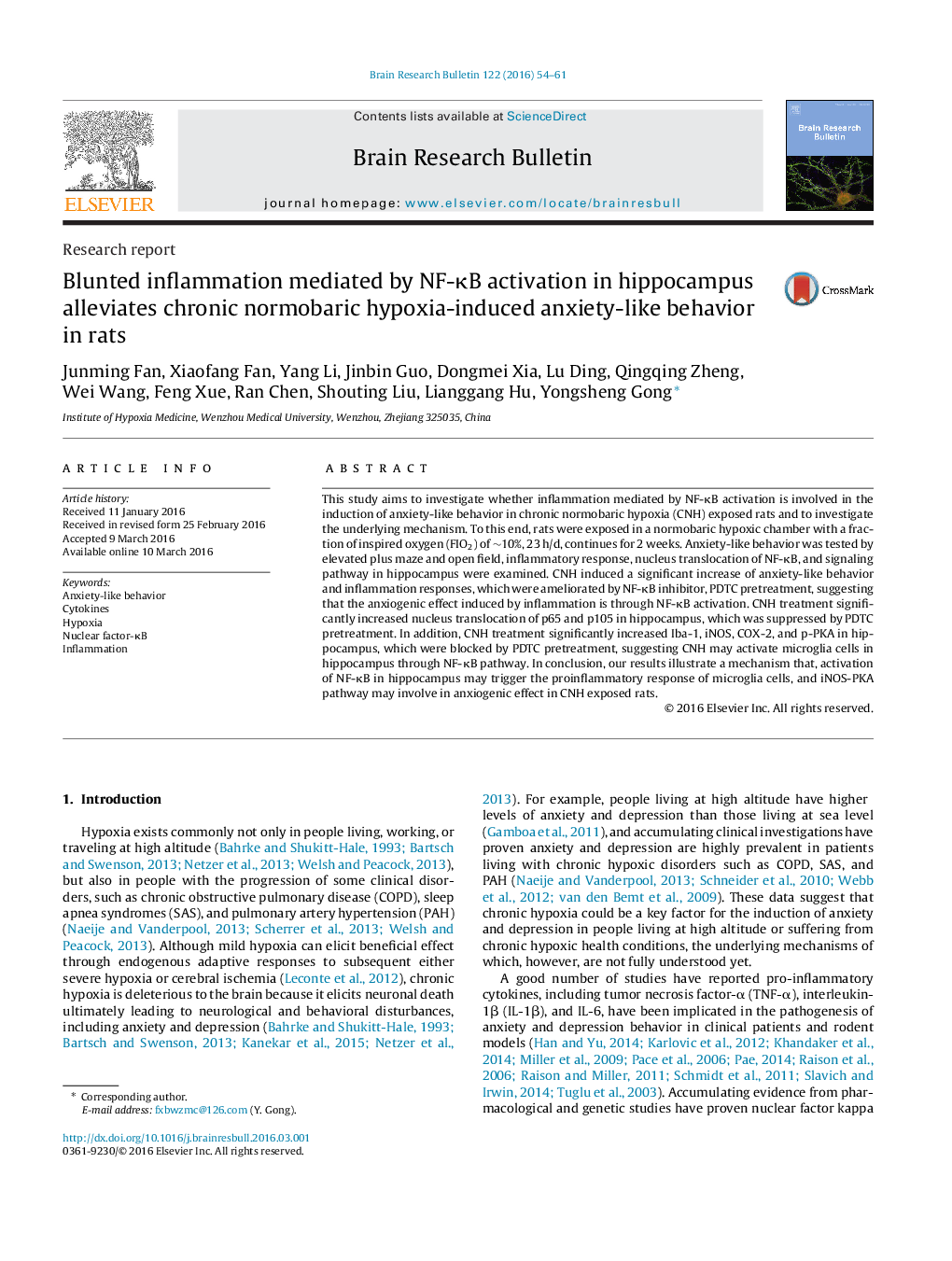| Article ID | Journal | Published Year | Pages | File Type |
|---|---|---|---|---|
| 6261670 | Brain Research Bulletin | 2016 | 8 Pages |
â¢Chronic normobaric hypoxia (CNH) induces anxiety-like behavior in rats.â¢Inflammatory responses in hippocampus may be involved in anxiety-like behavior in CNH rats.â¢CNH-induced anxiety-like behavior in rats may be mediated by NF-κB signaling pathway in the hippocampus.
This study aims to investigate whether inflammation mediated by NF-κB activation is involved in the induction of anxiety-like behavior in chronic normobaric hypoxia (CNH) exposed rats and to investigate the underlying mechanism. To this end, rats were exposed in a normobaric hypoxic chamber with a fraction of inspired oxygen (FIO2) of â¼10%, 23 h/d, continues for 2 weeks. Anxiety-like behavior was tested by elevated plus maze and open field, inflammatory response, nucleus translocation of NF-κB, and signaling pathway in hippocampus were examined. CNH induced a significant increase of anxiety- like behavior and inflammation responses, which were ameliorated by NF-κB inhibitor, PDTC pretreatment, suggesting that the anxiogenic effect induced by inflammation is through NF-κB activation. CNH treatment significantly increased nucleus translocation of p65 and p105 in hippocampus, which was suppressed by PDTC pretreatment. In addition, CNH treatment significantly increased Iba-1, iNOS, COX-2, and p-PKA in hippocampus, which were blocked by PDTC pretreatment, suggesting CNH may activate microglia cells in hippocampus through NF-κB pathway. In conclusion, our results illustrate a mechanism that, activation of NF-κB in hippocampus may trigger the proinflammatory response of microglia cells, and iNOS-PKA pathway may involve in anxiogenic effect in CNH exposed rats.
